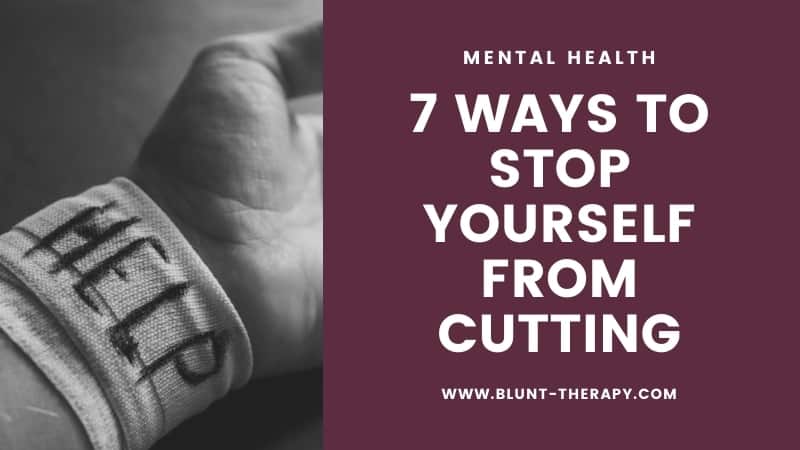Table of Contents
Affiliate link notice: As an affiliate of BetterHelp and other third-party vendors, We will receive compensation if you make a purchase using the links provided on this page. For more information, visit our disclosure page.
Last Updated on May 15, 2023 by Randy Withers, LCMHC
Mental health affects everybody. Everyone has a mind, and events or neurological disorders can trigger a problem with the brain. There has been a stigma surrounding the topic for years, but more people have accepted it’s OK to have a mental health disorder and go to therapy for help.
Learning about and recognizing the signs of mental health conditions in children is one of the best ways to ensure a healthy and happy childhood and future.

Common Mental Health Conditions in Children
By the time children turn 18, about half of them will have had a diagnosable mental illness. It’s the most common health problem among children and adults, whether it gets diagnosed or not. Unfortunately, people often look over mental health conditions because of their stigma or because they’re hard to notice.
Here are some common mental health conditions among children:
- Anxiety: When children have anxiety, they express persistent worry and fears that can disrupt their daily function.
- Autism spectrum disorder: This usually appears before age 3. Symptoms might include difficulty communicating or interacting with peers.
- Attention-deficit/hyperactivity disorder: Children with ADHD have trouble paying attention and exhibit impulsive behaviors or hyperactivity.
- Depression: A child with depression will have constant sadness or loss of interest in activities.
- Eating disorders: Eating disorders are a preoccupation with a body type, disordered thinking about weight and unsafe food habits.
- Post-traumatic stress disorder: A child may have PTSD if they have prolonged anxiety, distressing memories, emotional distress and nightmares in response to a traumatic event.
There are also many contributing factors that contribute to mental health conditions in children. Below are some things that could affect a child’s mental health.
- Family conflict
- Poor parenting or parental supervision
- Peer rejection
- Stressful events
- School violence
- Poverty
- Loss of close relationship or friend
- Need for social approval and support
- Low self-esteem
Knowing common mental health conditions among children makes it easier to recognize some of the often-missed signs of a mental health problem. Below are some missed signs to be aware of.
1. Lack of Communication
Depending on the child’s age, they may have trouble communicating, because elementary kids are still learning basic communication skills. That’s why this is an often-missed sign of a mental health condition.
If there’s a noticeable lack of communication or a child isn’t as talkative as expected, it could signify a mental health issue. They might be sharing less about their school day, giving ambiguous answers, and won’t tell parents how they actually feel.
2. Disinterest in Activities
Typical childhood activities include coloring pictures, spending time with friends, playing with their toys, or running and jumping outdoors. Kids might have their own interests and activities they enjoy regularly.
If a child isn’t playing or refuses to go to the playground for a few hours on the weekend, it could signify deteriorating mental health. It’s not normal for a child not to want to play.
3. Isolation
During the elementary school years, children often make new friends and enjoy being around others. They’re meant to be social and play with others. If kids opt to be alone more often, it could signify a problem.
If a child is usually outgoing and makes friends fairly quickly, a sudden change in their social environment should raise concerns. Loneliness can also lead to further problems too.
4. New Fears
Children are resilient beings. They’re outgoing and love to try new things, whether it’s foods, a new piece of playground equipment or the outdoors.
Part of a child’s development faces new challenges and obstacles as they build social, emotional and physical skills. They often go out of their comfort zone. Kids becoming suddenly afraid of things they weren’t afraid of before could signify a deepened issue of anxiety.
5. Persistent Sadness
Persistent sadness could be an early sign of depression. If they’ve been feeling down or depressed for more than two weeks for an unknown reason, they should visit a therapist or family doctor.
Expressions of sadness may include increased crying, isolation, unwillingness to participate in activities, a blank stare, unresponsiveness, or no emotion when presented with something that previously made them smile or laugh.
6. Trouble Sleeping or Eating
This should be easy to catch if parents are with their kids frequently. However, this could be a missed sign, especially if the child participates in activities or is a pickier eater.
A child who can’t sleep may be anxious, which could prevent them from falling and staying asleep.
Also, picky eaters may not eat much in the first place, but a child eating less than average or throwing up their food may be experiencing a mental health disorder.
7. Decreased School Performance
Some children excel at school, and others may need help. Parents with kids who typically perform well may not notice if their child has been getting lower grades because they may think they don’t have to check on them.
That’s why it’s always important to keep up with school marks. A sudden drop in homework, quiz and test scores is a telltale sign that something is wrong. Usually, teachers will notify parents of decreased school performance.
8. Physical Pain With Unknown Cause
Children could have a mental health condition if they begin to have physical pain without a clear medical cause.
For example, if a child suddenly starts getting regular headaches and doesn’t have a history of migraines or another health issue that causes them, they may have a mental health issue. Other pain may include stomachaches, nausea or fatigue. Physical changes can be as significant in determining mental health as emotional ones.
9. Separation Anxiety
Sometimes, parents get a sense of happiness in knowing that their children cannot be away from them. They love that their children want to be attached to them because they see it as a sign of extreme affection.
However, kids should be able to be without their parents. If a child has excessive distress about being away from caregivers, their home or other loved ones, it could cause disruptions in daily functioning and routine.
10. Self-Harm
When people become depressed, anxious or have a mental health condition that affects their ability to find release, they may turn to self-harm.
Self-harm is a behavior where a person commits an act of injury to harm themselves on purpose. Elementary-aged children may begin to think about their feelings more, and cutting or other self-harm is a way to distract them from any intense emotional pain they are feeling. Children may hide this, so it can be a missed sign.
11. Mood Swings
Extreme mood swings can be a sign of a mental health condition. Pay close attention to the child’s temperament and emotions.
Does a particular cause trigger mood swings? Has this been happening in a cycle for months at a time?
When parents start to understand the pattern, it can help a therapist or family doctor diagnose whether it’s trauma-related, a mood disorder, or childhood growing pains.
12. Drastic Personality Changes
Another missed sign might be a personality change. It may be hard to notice this, because an elementary-aged child will get new friends and learn new things that can shape and mold them into who they are as a person, including their personality.
If a child is usually a happy-go-lucky person and suddenly gets defensive or is sad all the time, this is a change in their character and should be checked.
How to Help Children With Their Mental Health
Fortunately, there are ways to help children and support their mental health. One way is through nurturing. It goes beyond giving a child food, clothing and shelter. Parents should build a strong and healthy emotional relationship with them, so they come to them with mental health problems. They need comfort in their times of need.
Parents can also encourage good physical health. Eating healthy foods and getting exercise is a terrific way to support their mental health. It releases feel-good hormones and keeps them physically fit.
Also, keep an eye on potential signs and symptoms of mental health. Being proactive can prevent further decline.
Final Thoughts
Recognize your child’s efforts, model healthy coping skills, and create a routine. These are all excellent ways to boost their mental health.
If parents notice a decline in their children’s well-being, they should take them to a doctor or specialist as soon as possible to get them the help they need.











Mental health affects everybody. Everyone has a mind, and events can trigger a problem with the brain. In this blog we learn about recognizing the signs of mental health conditions in children is one of the best ways to ensure a healthy and happy childhood and future.
This will really help us. Thks for sharing.
Also, visit POSH Training for more information.